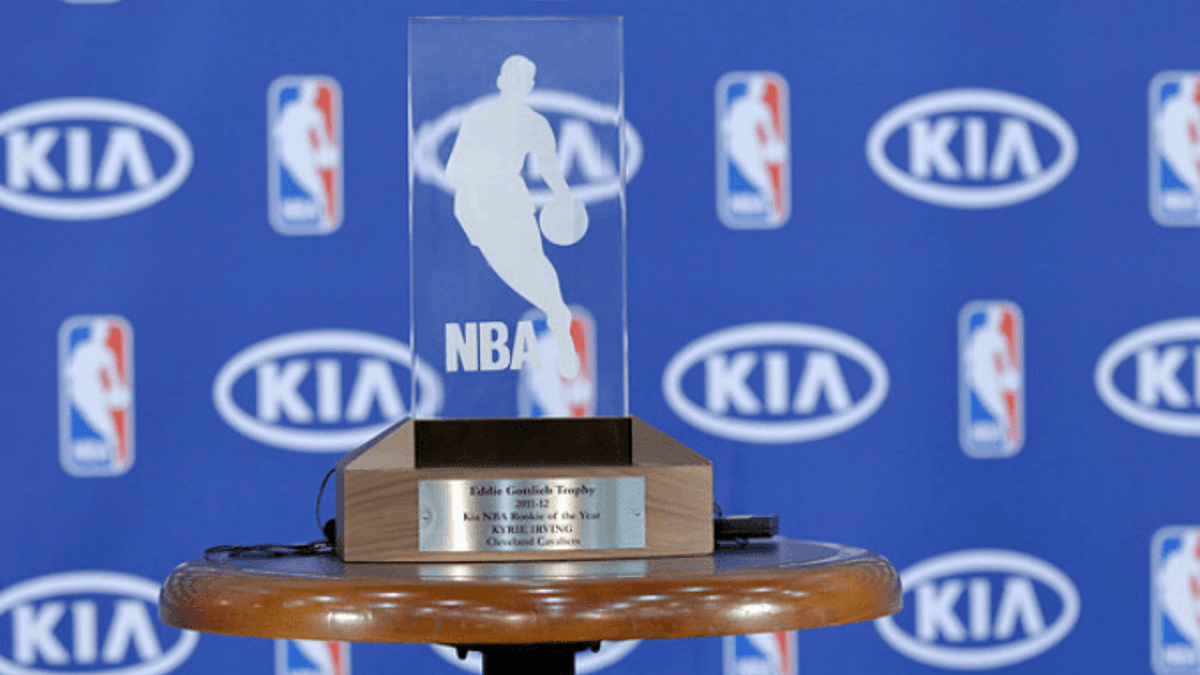NBA Betting Tips: Picking Rookie of the Year Award Winners

Regardless of what you consider a rookie to be – don’t ask Donovan Mitchell – the NBA's Rookie of the Year race is annually one of the most exciting races for basketball betting fans all over the world.
The best young players showing off their current skill set as well as what’s to come usually comes down to the final month, making this market a fun and potentially lucrative long-term wager. But there’s much more involved than simply visiting the top online bookmakers and backing the top picks.
Here are six things to look for when considering betting the Rookie of the Year market.
Minutes Matter
This feels like an obvious one – that a player needs to be on the court – but consider from 2001 to 2018, 16 of 17 Rookies of the Year played 30 or more minutes per game. Half of those averaged a whopping 36 minutes or more per game, which would have ranked 14th during the 2018 season. The award winners amass counting stats – not necessarily efficient ones – meaning total minutes are crucial when backing the market.
Find a player who has an open window to both start and play big minutes each night, not just as a rotational player. The best rookies are going to have longer leashes and allowed to play through their mistakes. From 2000 to 2018, 56 rookies averaged 30 or more minutes, or 3.1 per season. Identify the players who might reach that threshold and you have a good chance of finding your Rookie of the Year winner.
Point Guards Get the Edge
Which young position has to work through his mistakes? The point guard. They’ve also got the ball in their hands, leading to more numbers (we’ll get to that later). And in a league that continues to rely more on elite and versatile point guard play, Rookie of the Year winners reflect that. Nine of 13 winners between 2005-2018 were point guards, including 5 of 7 between 2011-2018. All nine of those players averaged at least 4.0 assists, if you’re looking for a bar for your potential pick to reach.
When in Doubt, Go with a Top Pick
There’s no real correlation with the Rookie of the Year winner and where he was drafted. From 1999 to 2018 the winners have come from picks 1, 2, 3, 4, 5, 6, 9, 11, and 36 (Malcolm Brogdon is the outlier to end all outliers).But beginning with LeBron James in 2003-04 and going till 2018, seven of the 15 winners were the No. 1 pick (Simmons, Towns, Wiggins, Irving, Griffin, Rose, James). Two others were the No. 2 pick (Okfaor, Durant), meaning 60 percent of the Rookies of the Year came from the Nos. 1 and 2 slots. This shouldn’t be shocking, given they’re the most talented players in the class.
Points are a Good Barometer
We told you minutes matter. And when you play more minutes, you have more opportunities to score points. That’s big, because 12 of the 18 Rookies of the Year between 2000 and 2018 led their class in scoring. The other six finished second, second, third, third, third and fifth (again, thanks Malcolm Brogdon). That’s an average of 1.6 where Rookies of the Year finished in scoring.
Because efficiency is rarely taken into account, and most times the best rookies play for the worst teams – so team record doesn’t really matter – high scoring totals stand out. Consider that when making a play.
That’s great if you believe a rookie center can come in and be a defensive threat from Day 1 and make an impact on that end of the floor. It just probably isn’t going to result in a Rookie of the Year award. Make sure your pick has the potential to score with the best in his class.
Make Sure Your Winner is a Loser
Ben Simmons (2018, Sixers) and Malcolm Brogdon (2017, Bucks) played for above-.500 teams. That ended a rather long trend that we believe will begin again sooner than later. And that’s seven Rookie of the Year winners from 2011 to 2018 played for teams that won an average of 25.7 games; the “best” team of those seven won 33 games (Damian Lillard’s 2013 Blazers).
Prior to the 2017 and 2018 seasons, you had to go back to the 2003 Phoenix Suns and Amare Stoudemire to find a Rookie of the Year award winner on a winning team. Those past two years had odd circumstances, too: Simmons was in his second NBA season and playing for a Sixers team that was ready to contend; Brogdon was a second-round pick in a wildly disappointing rookie class. Expect the losing trend to begin again soon.
Check Out: Legal Quebec Sports Betting sites and major sports to bet on.
Sustained Success
Rookies of the Year need to have the perfect situation, with ample playing time, enough of a supporting cast to help his numbers but not enough to detract in other areas. But Rookies of the Year in the NBA also have sustained success.
There’s rarely a flash in the pan. From 1992 to 2013, all but five of the 24 Rookie of the Year winners went to at least two All-Star Games. So it’s important to consider which players will succeed in Year 1, but you’ll also want to find players you believe can become All-Stars in the long-term.
Now that you've got the basics down for betting the Rookie of the Year market, lets check out the MVP market.
Stay In The Loop With Free Bets, Insider Tips & More!
Live Betting. Sports Promos. Sent Weekly.








